A Russian actress and a film director returned to Earth Sunday after spending 12 days on the International Space Station (ISS) shooting scenes for the first movie in orbit.
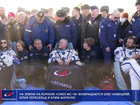 Full Story
Full Story
Switzerland's foreign minister says concerns about a "new Cold War" over science and technology are a major reason behind the creation of a new think tank that looks out for future advances and development — so that the whole world can benefit, not just rich countries.
Ignazio Cassis delivered a video message for the inaugural "summit" on Thursday and Friday of the Geneva Science and Diplomacy Anticipator, or GESDA, a Swiss government-backed project that aims to bridge government policy and science in an international city known for both.
 Full Story
Full Story
AUB President Fadlo Khuri has expressed his pride in Professor Ardem Patapoutian, who was awarded this year’s Nobel Prize in physiology or medicine, through a congratulatory letter in which he expressed that the AUB community is doubly pleased as Patapoutian is not only Lebanese, but also a former student at the American University of Beirut.
Patapoutian, professor of neuroscience at Scripps Research institute in California, an American University of Beirut (AUB) alumnus and former student, has been awarded this year’s Nobel Prize in physiology or medicine. The Nobel Committee in Stockholm announced Monday that Patapoutian and his fellow molecular biologist David Julius have been awarded for their discoveries of receptors for temperature and touch. Patapoutian is the first AUB alumnus to win a Nobel Prize.
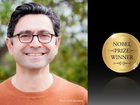 Full Story
Full Story
The United Arab Emirates on Tuesday announced plans to send a probe to land on an asteroid between Mars and Jupiter to collect data on the origins of the universe, the latest project in the oil-rich federation's ambitious space program.
The project targets a 2028 launch with a landing in 2033, a five-year journey in which the spacecraft will travel some 3.6 billion kilometers (2.2 billion miles).
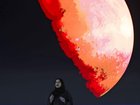 Full Story
Full Story
The Nobel Prize for physics has been awarded to scientists from Japan, Germany and Italy.
Syukuro Manabe and Klaus Hasselmann were cited for their work in "the physical modeling of Earth's climate, quantifying variability and reliably predicting global warming".
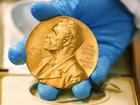 Full Story
Full Story
Two scientists won the Nobel Prize in medicine on Monday for their discoveries into how the human body perceives temperature and touch, revelations that could lead to new ways of treating pain or even heart disease.
Americans David Julius and Ardem Patapoutian identified receptors in the skin that respond to heat and pressure. Their work is focused on the field of somatosensation, which explores the ability of specialized organs such as eyes, ears and skin to see, hear and feel.
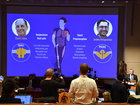 Full Story
Full Story
A trio of Chinese astronauts returned to Earth on Friday after a 90-day stay aboard their nation's first space station in China's longest mission yet.
Nie Haisheng, Liu Boming and Tang Hongbo landed in the Shenzhou-12 spaceship just after 1:30 p.m. (0530 GMT) after having undocked from the space station Thursday morning.
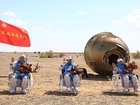 Full Story
Full Story
For Bangkok market sellers, the armpit sweat soaking their T-shirts during the humid monsoon season may contain subtle signs of coronavirus infection, local scientists have said.
 Full Story
Full Story
Just off the northern coast of Iceland, scientists are collecting data from whales' breath to find out if they get stressed by whale-watching boats, an industry that has boomed in recent years.
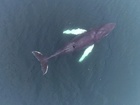 Full Story
Full Story
Scientists say that global warming makes the kind of extreme rainfall that caused deadly flash flooding in western Europe last month more likely, though it remains unclear exactly how much.
At least 220 people died in Germany and Belgium on July 14-15 when swollen streams turned into raging rivers, sweeping away houses, roads and bridges, and causing billions of euros (dollars) in damage.
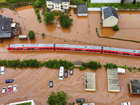 Full Story
Full Story



